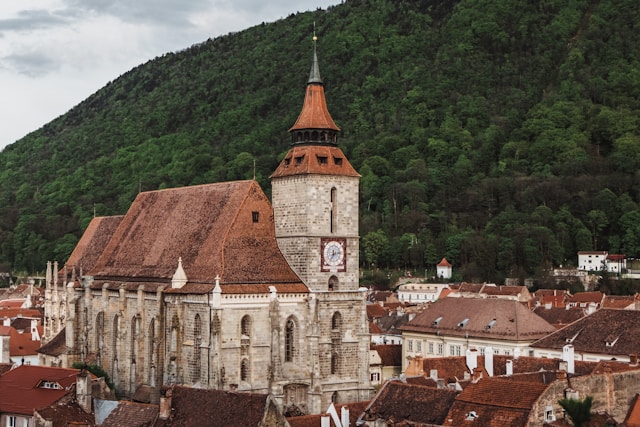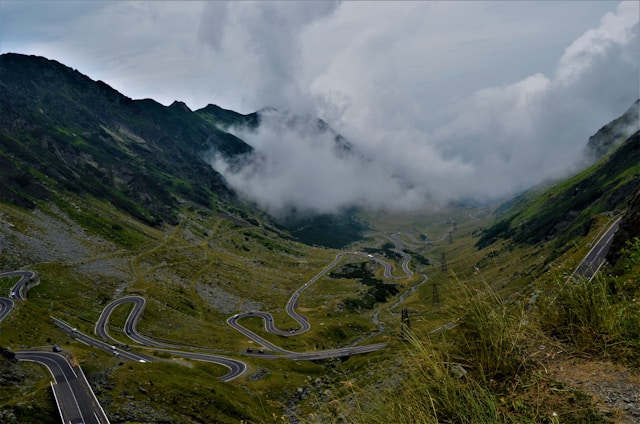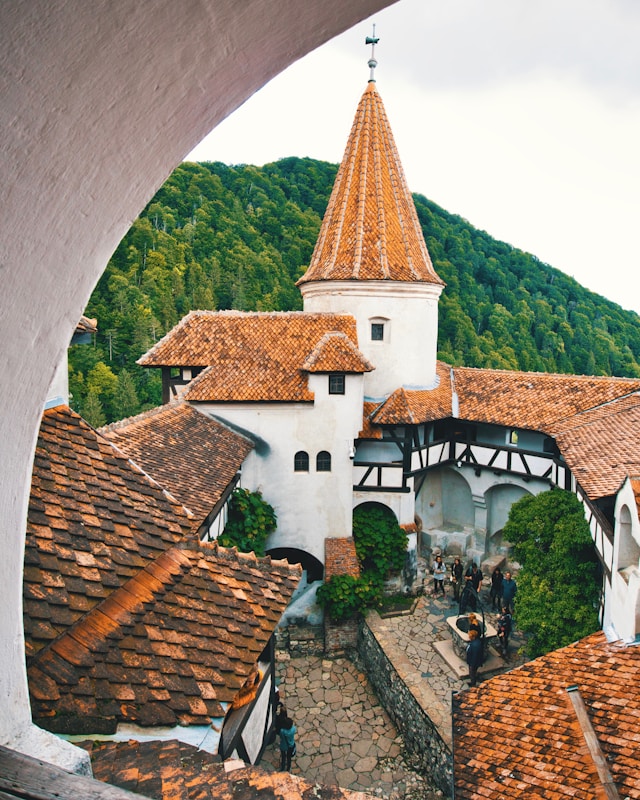
The Effects of Increasing Tourist Numbers in Transylvania on the Real Estate Market
Transylvania, the storied region in central Romania, has long captured the imaginations of visitors with its Gothic castles, medieval towns, and stunning natural landscapes. In recent years, however, Transylvania has witnessed a significant surge in tourism, drawing visitors from all over the world. This influx has not only impacted the local economy but has also begun to shape the real estate market in the region, particularly within the industrial and commercial sectors. Tourism in Transylvania has seen substantial growth, with destinations like Brașov, Cluj-Napoca, and Sibiu becoming increasingly popular among international tourists. Events such as the Untold Festival in Cluj-Napoca and the Sighișoara Medieval Festival have further cemented the region’s appeal. The global fascination with Transylvania's rich history, alongside its associations with Dracula and the allure of its well-preserved medieval architecture, has made it a must-visit destination. This growing popularity has led to a boom in the hospitality industry. Hotels, restaurants, and tourist attractions have proliferated, creating a ripple effect on the local economy. However, one of the most significant impacts has been on the real estate market, where increased demand has driven changes, particularly in commercial and industrial properties. The surge in tourism has directly influenced the demand for commercial real estate in Transylvania. Cities like Brașov and Sibiu, which are at the heart of the region’s tourist circuits, have seen a rise in demand for retail spaces, restaurants, and entertainment venues. For example, in Brașov, the Old Town area has become a hotspot for new restaurants, cafes, and boutique shops aimed at catering to the increasing number of tourists. This demand has driven up rental prices and property values in prime commercial areas. Investors, both local and international, have recognized the potential for high returns in these locations, leading to a competitive market. Furthermore, the rise in tourism has sparked interest in the development of mixed-use properties. Developers are increasingly looking at projects that combine retail, dining, and accommodation in a single location. This approach not only maximizes the use of space but also caters to the diverse needs of tourists who are looking for convenience and a variety of experiences in one place. Hotels have played an important role in shaping Transylvania’s real estate market. As tourism has risen, so has the demand for high-quality accommodation. This has led to a wave of new hotel developments, particularly in key tourist destinations like Cluj-Napoca and Sibiu. The rise of boutique hotels, designed to offer a unique and authentic Transylvanian experience, has further driven up demand for centrally located properties. These developments often require the conversion of historic buildings into luxury accommodations, pushing property values higher and making prime real estate more competitive. Additionally, the presence of large hotel chains has brought significant investment into the region, boosting the local economy and providing employment opportunities. However, this influx can also drive up property prices, making it difficult for smaller, locally-owned businesses to enter the market. As a result, the hotel industry not only contributes to the economic vibrancy of Transylvania but also plays a crucial role in the evolving dynamics of its real estate market. While the impact of tourism on commercial real estate is more immediately visible, the industrial real estate sector in Transylvania has also felt the effects, albeit indirectly. The increase in tourism has led to a higher demand for local products and services, which in turn has spurred growth in the logistics and warehousing sectors. For instance, the food and beverage industry, which is crucial to tourism, requires efficient supply chains to support the increased consumption driven by visitors. As a result, there has been a growing need for industrial spaces like warehouses and distribution centers. Additionally, local artisanal products and souvenirs, which are highly popular among tourists, need storage and distribution facilities, further driving demand in this sector. Cities like Cluj-Napoca, which is a major hub for both tourism and industry in Transylvania, have seen increased investments in industrial parks. The proximity of these facilities to major transport routes and tourist hotspots is crucial for supporting the local economy. This has made industrial real estate in such locations an attractive investment opportunity. While the increase in tourism has brought many benefits to the real estate market in Transylvania, it also presents several challenges. One of the main concerns is the risk of overdevelopment in certain areas, particularly in city centers and tourist hotspots. As demand for commercial and industrial properties grows, there is a risk that new developments could outpace the infrastructure, leading to congestion and a decline in the quality of life for local residents. Moreover, the rising property values can make it difficult for local businesses to compete with larger, often foreign, investors. This could potentially lead to a loss of local character in some areas, which is one of the key attractions for tourists in the first place. Looking forward, the key to sustainable growth in Transylvania’s real estate market will be careful planning and regulation. Authorities and developers need to ensure that new projects are in line with the region’s long-term goals, preserving its cultural heritage while accommodating growth. The increasing number of tourists in Transylvania has had a profound impact on the region’s real estate market, particularly in the commercial and industrial sectors. The demand for retail spaces, mixed-use properties, and industrial facilities has risen significantly, driven by the growing need to cater to the influx of visitors. Hotels, in particular, have played a crucial role in this transformation, driving up property values and reshaping the landscape of key tourist destinations. While this presents lucrative opportunities for investors, it also necessitates a balanced approach to development to ensure that Transylvania remains a vibrant and sustainable destination for years to come. This dynamic interplay between tourism and real estate in Transylvania highlights the region's evolving landscape, where tradition meets modernity, and where opportunities for growth are abundant yet require mindful stewardship.The Tourism Boom in Transylvania

Impact on Commercial Real Estate
The Role of Hotels in the Real Estate Market

Industrial Real Estate: A Growing Demand
Challenges and Future Prospects

